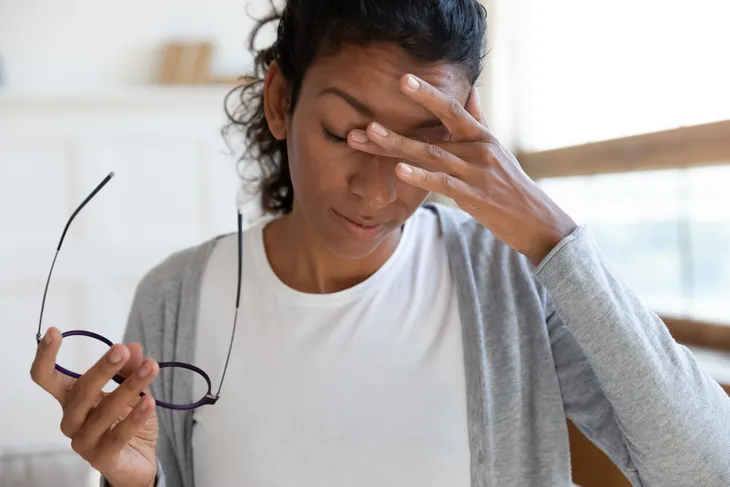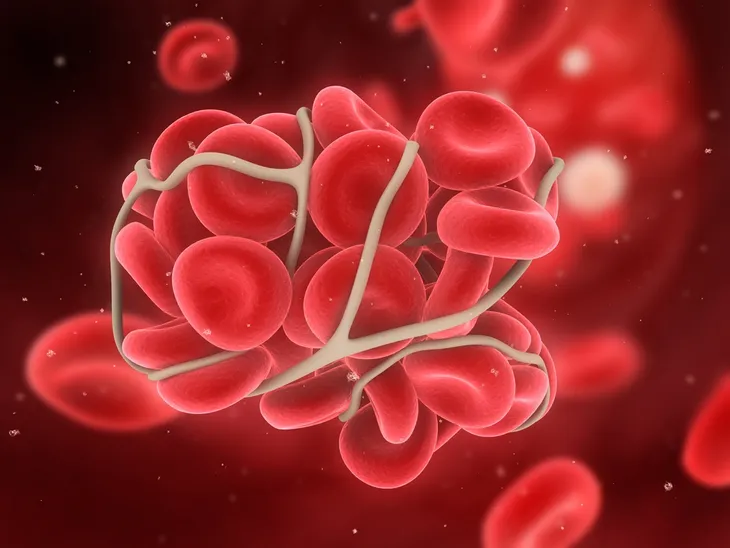- Behcet’s disease typically causes sores, pain, and inflammation in the eyes, mouth, and genitals.
- There’s no cure for the disease, but various treatments can make the symptoms more manageable.
- While it can cause serious complications, most people with the condition have a normal lifespan.
Behcet’s disease, also known as Behcet’s syndrome, is a rare health condition that causes inflammation in the blood vessels. Most people with Behcet’s disease experience inflammation and lesions around the eyes, mouth, and genitals, but the disorder can also affect other parts of the body. Behcet’s disease shares several symptoms with other, more common conditions, making it more difficult and time-consuming to diagnose.
If you have Behcet’s disease, learning as much as possible about your condition can help you manage your symptoms through lifestyle adaptations and self-advocate for the best possible care. Below, you can find out what causes Behcet’s syndrome, how it’s diagnosed, and what treatments are available.
Causes of Behcet’s Disease
The root causes of Behcet’s syndrome are complex, but it’s thought to be a type of autoimmune disorder. Autoimmune disorders cause the body’s immune system to damage healthy tissue. In people with Behcet’s disease, inflammation damages blood vessels throughout the body, known as vasculitis.
Scientists don’t fully understand why some people develop Behcet’s disease, but it’s known that specific genes can increase the chances of getting the condition. Some research suggests that a bacterial or viral infection can lead to developing Behcet’s disease if you have a higher genetic risk.
Risk Factors
You can develop Behcet’s disease at any age, but you’re more likely to get it in your 20s and 30s. Both men and women have an equal risk of Behcet’s disease, but it often causes more severe symptoms in men.
Your ethnicity can also affect your chances of developing Behcet’s disease. The disease is most common in people of Middle Eastern and East Asian heritage. Some research suggests that your ethnicity can also affect the type and severity of your symptoms, although there is no scientific consensus.
Common Symptoms of Behcet’s Disease
Most people with Behcet’s disease have a classic symptom triad of ulcers and inflammation inside the mouth, around the genitals, and inside the eyes. These sores may come and go in flares and can cause pain and blurred vision.
Many people with the condition also develop painful inflammation and swelling around the joints or limbs. Some people also experience digestive symptoms, such as loose stools and rectal bleeding. Neurological symptoms, such as headaches and balance problems, can occur if the disease affects the blood vessels in the brain.
Complications
Complications can occur in people with Behcet’s disease if the blood vessel inflammation affects major organs. For example, having the disease increases your risk of developing a blood clot or aneurysm, especially if it affects larger arteries. Brain inflammation can also increase the chances of having a stroke.
One of the most common complications of Behcet’s disease is reduced vision or blindness because the condition typically causes eye inflammation. Regular visits to an eye specialist (ophthalmologist) can help reduce the risk of developing eye complications. Loss of vision is now relatively rare in people receiving ophthalmological care.
Diagnosis
There isn’t a definitive medical test to confirm Behcet’s disease. Instead, doctors diagnose the condition based on a patient’s symptoms. Typically, they look for at least three incidences of mouth ulcers in a single year combined with skin, eye, and genital sores and inflammation. A positive pathergy test can also indicate a diagnosis of Behcet’s disease alongside the classic symptoms.
Several other conditions can cause similar symptoms to Behcet’s disease, including lupus and Crohn’s disease. Therefore, your doctor may order tests to rule out other potential causes before diagnosing Behcet’s disease.
Treatment Options
Doctors can prescribe topical treatments to help reduce discomfort during Behcet’s disease flares and prevent damage to the skin and eyes. These treatments typically contain corticosteroids and other anti-inflammatory medications to ease pain and inflammation.
If you have skin sores, your doctor may recommend medicated gels or creams to apply to the affected areas. They may also prescribe a medicated mouthwash to treat ulcers inside the mouth. Eye drops can help reduce eye inflammation if your symptoms are relatively mild.
 novak.elcic / Shutterstock
novak.elcic / ShutterstockMedication Options
Some people with Behcet’s disease can manage their symptoms with topical treatments. If this doesn’t work or the symptoms are more severe, doctors may prescribe immunosuppressant drugs to stop the immune system from destroying healthy cells. Alternatively, they might recommend medicines to change how the immune system functions and reduce inflammation.
Many people with Behcet’s disease take corticosteroids alongside other medications to manage inflammation. They might also take a medicine that can help reduce sores and joint swelling.
Lifestyle Changes
People with Behcet’s disease often need medical support to manage their condition, but there are things you can do at home to help you cope with symptoms. The Mayo Clinic recommends getting plenty of rest when you experience a symptom flare-up and minimizing stress as much as possible. Gentle exercise can also improve your quality of life during periods when you feel less unwell.
Some anecdotal and scientific data suggest that certain foods high in histamines can trigger a flare. Therefore, it may be worth keeping a food diary to help you identify and avoid triggers.
Prognosis
There is no known cure for Behcet’s disease. Most people with the condition will experience flares from time to time throughout their lives, even with appropriate treatment. People with Behcet’s disease usually have an average lifespan, particularly if they only experience eye, skin, and joint inflammation with no major organ involvement.
Occasionally, Behcet’s disease can cause life-threatening symptoms if the condition is severe and affects major organs. People with vasculitis in the lungs, brain, or central nervous system are at higher risk of life-threatening complications and require close monitoring by their medical teams.
Behcet’s Disease and Pregnancy
Having Behcet’s disease doesn’t increase your risk of fertility problems or pregnancy complications. In 50- to 70-percent of cases, the hormonal changes during pregnancy can temporarily improve the symptoms of Behcet’s disease.
However, some of the medications used to treat Behcet’s disease can pose a risk to an unborn baby. It’s wise to consult your medical team if you have Behcet’s disease and are pregnant or trying to conceive. Your doctor may recommend changing your treatment regime to keep you and your baby healthy.
Behcet’s Disease and Mental Health
Many people with Behcet’s disease experience mental health problems such as depression and anxiety. These issues can be caused by the discomfort of symptoms, difficulty obtaining a diagnosis, and the lifestyle restrictions of living with a chronic illness. Occasionally, brain inflammation can lead to symptoms like agitation.
If you have Behcet’s disease and are experiencing associated mental health problems, talking can help. Many people find that spending time with loved ones and joining a support group can help improve their well-being. Speaking to a mental health professional with experience assisting people with long-term conditions can also be beneficial.
Where to Get Support
Finally, various groups and associations work to support people living with Behcet’s disease. BehcetsConnection offers a range of resources, including an interactive, educational course for affected individuals and their families and friends. The American Behcet’s Disease Association is also an excellent source of information and advocates for improved diagnostics and care for people with Behcet’s disease.
Many people find that connecting with others with chronic health conditions helps them cope with living with Behcet’s disease. RareConnect is an online forum that allows people to get in touch with others with rare diseases worldwide.














